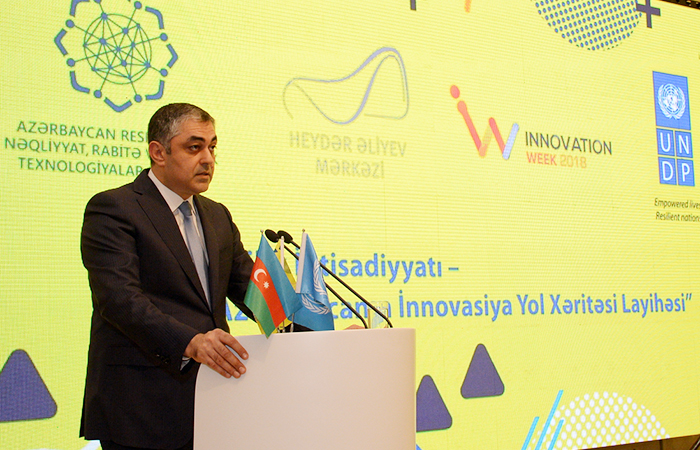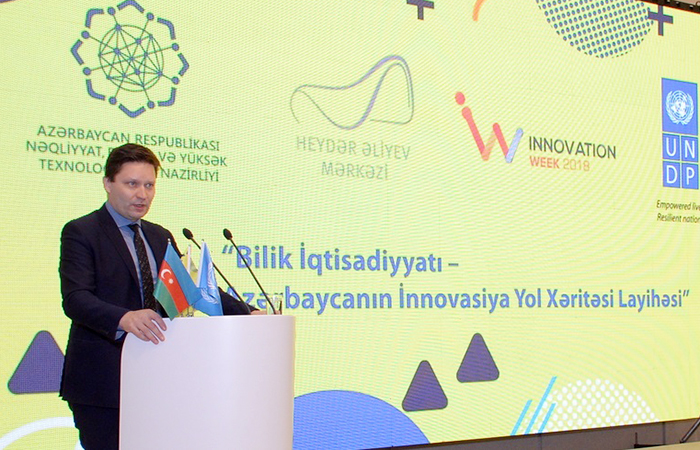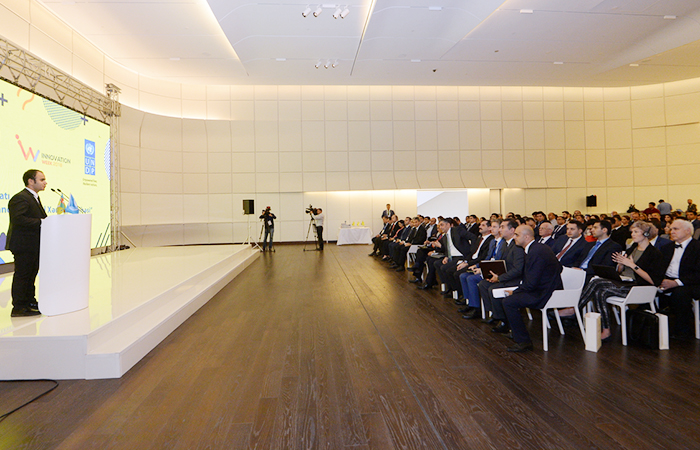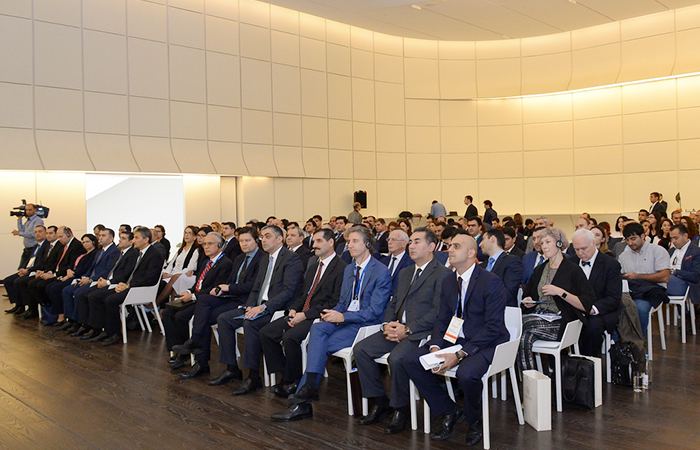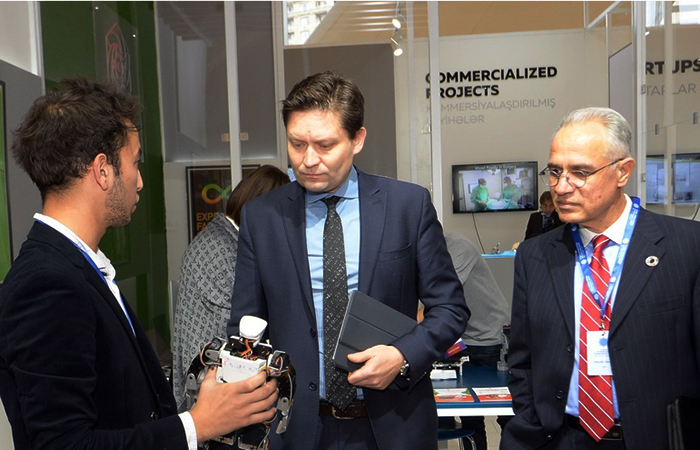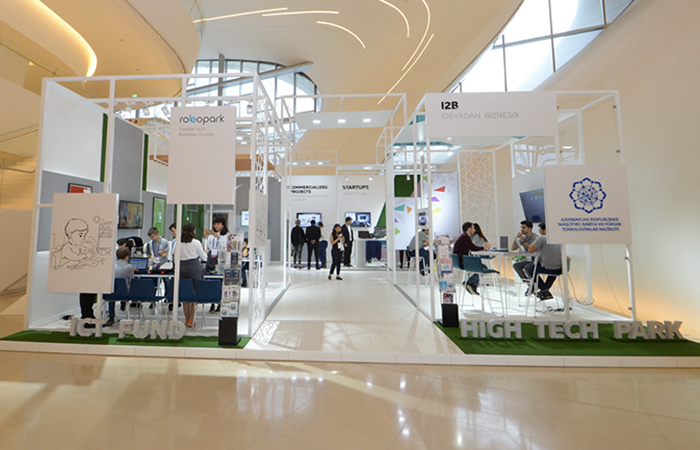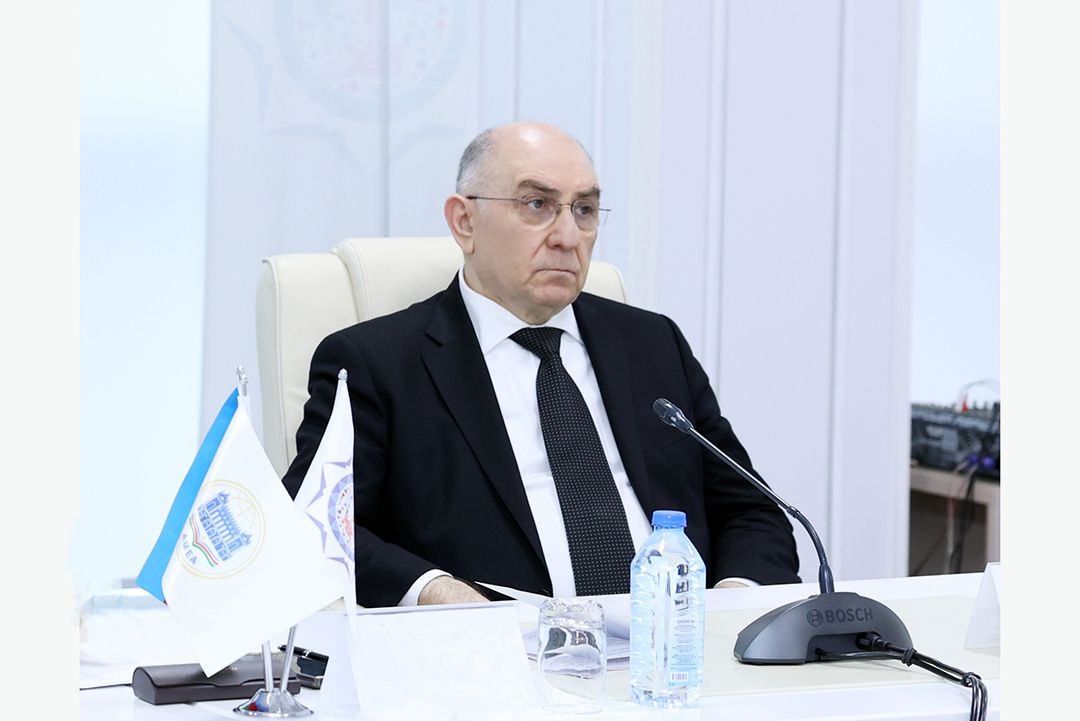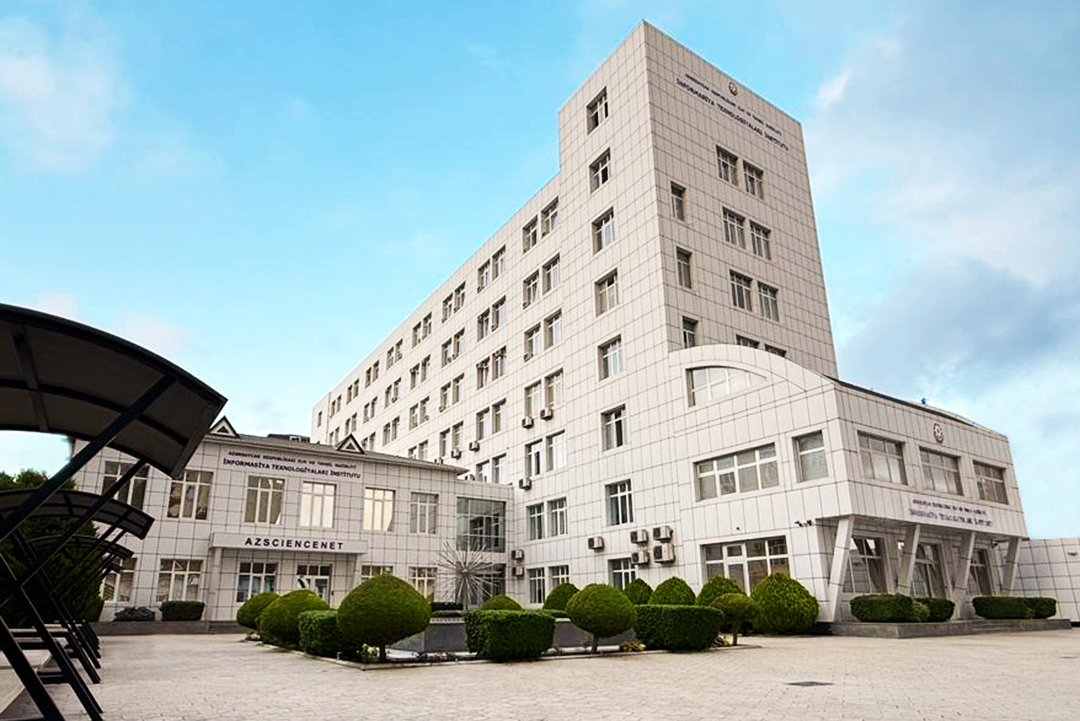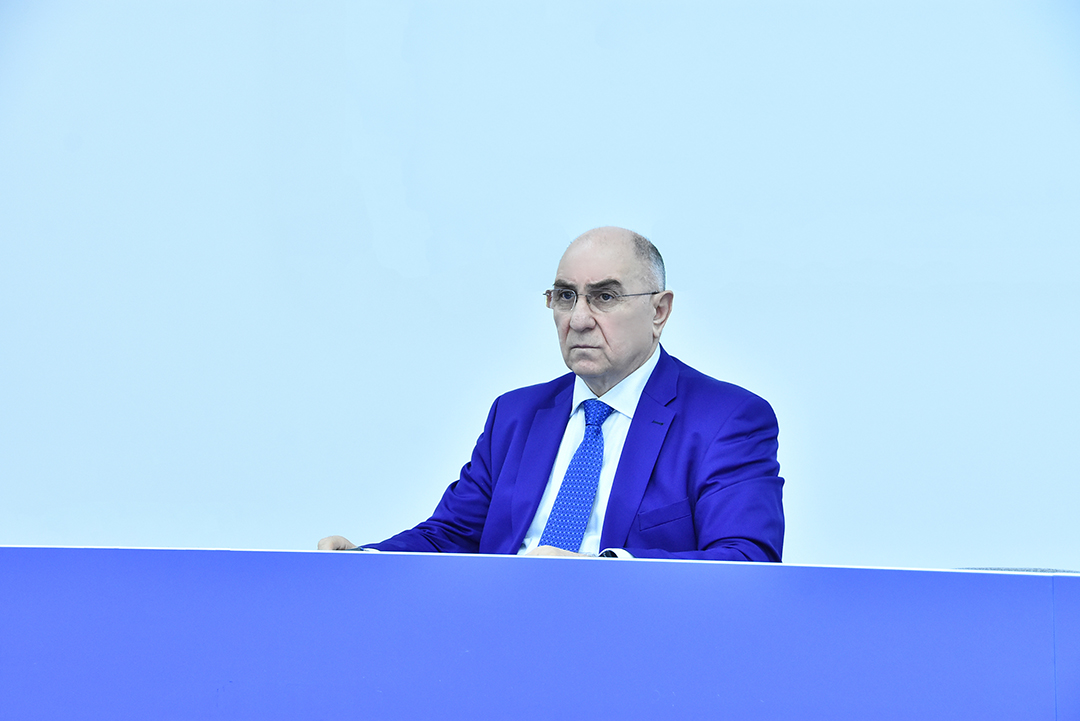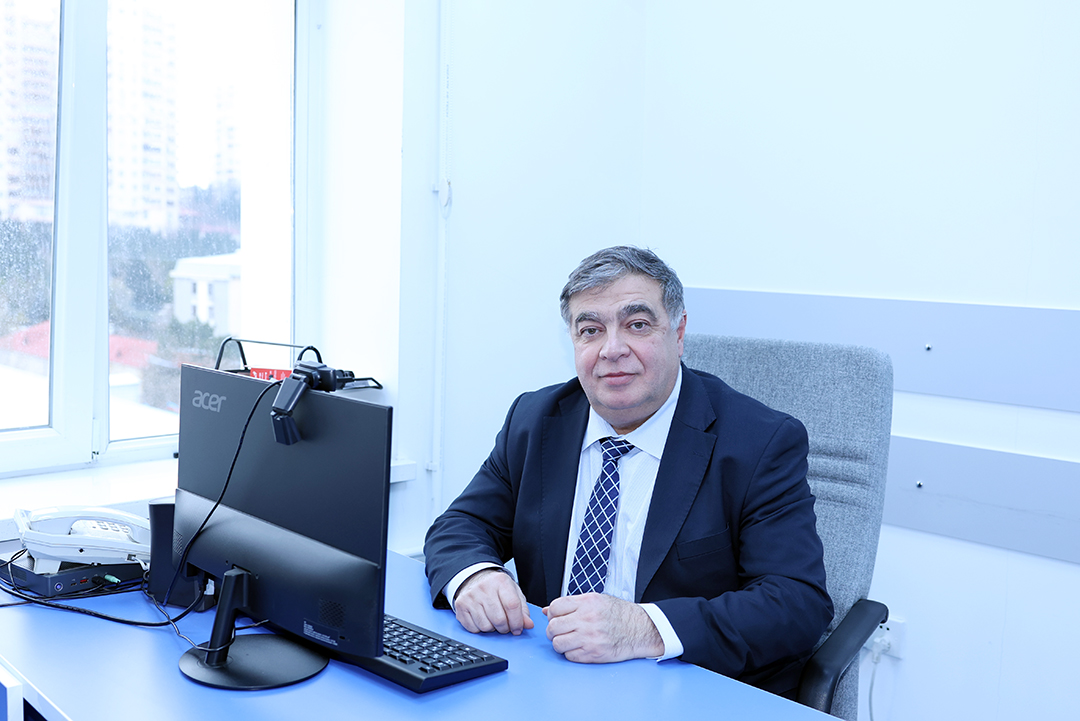NEWS
Projects on innovation development in Azerbaijan presented
The presentation of projects on the development of innovations in Azerbaijan was held on October 26 within the framework of the international Innovation Week, held for the first time by the Ministry of Transport, Communications and High Technologies (MTCHT) together with Heydar Aliyev Center.
The following projects were presented at the event, which was organized by the United Nations Development Programme with the support of the MTCHT: “Knowledge Economy – Azerbaijan’s Innovation Roadmap”, “Developing an Innovative Knowledge-Based Economy in Azerbaijan - Evaluation and Document Proposals”, “Effective Investment Conditions for Provision of support for the high-technology sector of Azerbaijan and investment rules for special institutions: building the future of Azerbaijan by investing in high technology sector and ICT”; “Formation of the future of Azerbaijan: development of National Concepts and innovative structures for development of the digital economy – an Action Plan for the investment of heavy-tech enterprises" were presented at the event, which was organized by the United Nations Development Programme with the support of the MTCHT.
It should be noted that the road maps of innovations were prepared by experts of the United Nations Development Programme.
The event was addressed by Minister of Transport, Communications and High Technologies Ramin Guluzade and Deputy Regional Director of the United Nations Development Programme for Europe and the CIS Rastislav Vrbensky.
Ramin Guluzade noted that main targets of innovations are reflected in the development concept “Azerbaijan 2020: A Look into the Future”, approved by President of the Republic of Azerbaijan Ilham Aliyev.
Stressing that a number of serious steps have already been taken to implement the innovative development model, the Minister said that the legislative framework has been improved in this direction, industrial and technological parks have been created.
“High technologies, including information and communication technologies play an important role in innovation activity. ICT opens up ample opportunities for the application of innovations in education, health service, agriculture, manufacture, services, social and other spheres. The High Technologies Park was established under the Ministry of Transport, Communications and High Technologies in order to ensure the expansion of innovative and high-tech industries based on modern scientific and technological achievements, and High Technologies Park was also established in Mingachevir. Tax and customs privileges are applied in these parks,” the Minister added.
Ramin Guluzade also noted that work is currently underway to expand the activities of technologies parks and creation of new manufacturing enterprises in the field of high technologies.
According to him, in order to stimulate innovation activity, a Business Incubation Center has been established in the High-Tech Park of the Ministry, where over 30 startup projects work.
“In addition, the High Technologies Research Center under the Ministry of Transport, Communications and High Technologies is working on obtaining various types of new high-tech materials in the field of high technologies, as well as work on priority areas in the field of nanotechnology continues. To support innovative entrepreneurship, the State Fund for Development of Information Technologies operates under the Ministry. Preferential loans are given to successful commercialized projects and in order to finance more successful projects, the Fund acts as a co-investor. To that end, 117 projects, winners of 6 grant competitions have already been financed.”
Ramin Guluzade also said that today many countries are developing and implementing strategies, programs, road maps for the purpose of innovative development of the economy. According to him, the development of these documents requires the involvement of internationally recognized and local experts, conducting extensive research and analysis: “This is precisely why we highly appreciate the preparation of the innovative road map of Azerbaijan by the United Nations Development Programme. I would like to underline particularly that the United Nations Development Programme plays a special role in the sustainable development of the world. As in all countries, it also actively operates in Azerbaijan. In the project “From Idea to Business”, carried out in order to expand the startup movement, support business ideas of young people, promote innovation and technology and implement innovative ideas in Azerbaijan, we cooperate with the United Nations Development Programme, working together to create a Robotics Laboratory in Baku. For us, the United Nations Development Programme is a reliable partner. I would also like to take this opportunity once again to express our gratitude to them.”
In turn, Rastislav Vrbensky noted that Azerbaijan has its own model in the innovation sphere. He described the holding of special panel meetings on innovations held these days within the framework of the International Humanitarian Forum as a manifestation of attention to this area. Rastislav Vrbensky stressed that he had the opportunity to get acquainted with real start-up projects that are shown in the pavilion of the ministry during the days of the forum at Heydar Aliyev Center, and received positive energy from them. The UN representative also noted the priority of this area in Azerbaijan.
Highlighting the wide scope of the startup movement in the country, Rastislav Vrbensky expressed satisfaction with the support of startup projects by the United Nations Development Programme jointly with MTCHT. Moreover, he said that the measures implemented in this area accelerate the process of achieving the United Nations Sustainable Development Goals.
After the speeches, the participants were shown a video entitled “Knowledge Economy - Innovative Road Map Project of Azerbaijan”.
The event aims to support the process of transforming ideas and inventions in the innovation sphere into products or services that create value for consumers, eliminating the barriers to innovation by creating a competitive environment and implementing legal reforms, coordinating development activities that are directly funded and implemented by the government.

